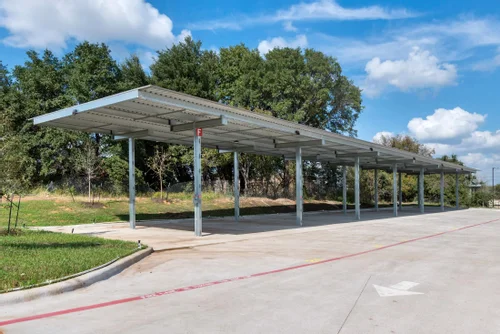Owning a Boat in Texas

Guide to Owning a Boat in Texas
Your Texas Boat Ownership Guide
All you need to know about owning a boat in Texas. From Lake Travis to the Gulf of Mexico, Texas boasts a broad collection of rivers, lakes, and other waterways.
To help you take advantage of these blue waters are boats of seemingly every size. Best of all, there are boats to fit nearly any need and budget.
But while boating is a uniquely rewarding experience—especially if you own your own watercraft—it can be a difficult hobby to get into.
Do you need a boating license? What about Texas boat registration? What kind of boat storage facilities are there? Here at Premium Spaces, we’ve got you covered with affordable boat storage and some answers to help you set sail for adventure.
Texas Boat Storage
Once you’ve got your boat registered and have acquired your boating license, it’s just about time to get out onto the water. However, there’s still another factor that you’ll need to determine—where to store your boat. Luckily, there are many different boat storage options near you.
Texas Boat Storage Facilities Near You
If you want a convenient boat storage option near your home, self-storage is a great way to store your boat. Self-storage is rented monthly and there are no long-term contracts, making it easy to store your boat over the offseason or get a different storage option if need be.
On Your Property
The easiest way to store your boat is to simply keep it on your property. Depending on the size of your boat, you’ve got multiple options: in your garage, in your driveway, in your yard, or even on the street by your house. However, there are many drawbacks to this, and in some areas you may not even be allowed to store your boat at home.
Marinas
Marinas are the most expensive option typically, although they do allow you to store your boat on the water without the need for transportation. However, this does make it harder to take your boat to other bodies of water.
Texas Boat Registration
All motorized vessels up to 115 feet in length and all non-motorized watercraft 14 feet or longer must be registered with the TPWD. Coast guard documented boats must also be registered. All registrations are valid for two years. If you are renewing your boat registration, you may do so online at the TPWD renewal website. However, if you are registering your boat for the first time, you must do so in person at one of the TPWD offices throughout Texas. In order to register your boat with the TPWD, you’ll need:

- Valid payment for fees
- TPWD identification number (or TX Number)
- If owned personally: the last name of the owner
- If owned corporately: the business name of the owner
- Personal identification information (DL/ID & DOB or EIN)
Do You Need a Boating License?
Yes, if you’re born on or after September 1, 1993, you will need a boating license. If you are born before that date, you do not need a boating license. You’ll need a boating license for all motorized vessels—including personal watercraft like jet skis—and for non-motorized vessels longer than 14 feet.
How Do You Get a Boating License?
To get your boater education certificate, you’ll need to take a TPWD-certified online boating examination course. The courses include information about navigation rules, how to properly operate your boat, and laws regarding boating. You can find information about courses on the TPWD boater education website.
How Old Do You Have to Be to Operate a Boat?
Anybody operating a boat that is at least 13 years of age, or born on or after September 1, 1993, must have a boating license (also called a boater education certificate card). If you are under 13 years of age, you may still operate a boat; however, you must be accompanied by an individual at least 18 years of age and who themselves has a boater education certificate card.
Can You Operate a Boat With an Out-of-State License?
If you’re born after September 1, 1993, the state of Texas requires you to have a boating license. However, Texas does honor out-of-state boating licenses as long as those licenses were accompanied by a NASBLA (National Association of State Boating Law Administrators) approved course.